September 30 marks the third National Day for Truth and Reconciliation, also known as Orange Shirt Day. This day recognizes the legacy of residential schools and honours the victims and Survivors of residential schools, their families, and their communities.
Part of the Museum’s role is to share these stories and provide opportunities to learn more about lesser-known parts of our history. We are collaborating with Indigenous communities and Survivors to revise the information on residential schools and Indigenous histories in our exhibits and programs to ensure they reflect the evolving situation and centre the experiences of Survivors. This important work continues.
Museum Access on September 30
The Museum is open from 9 a.m. to 5 p.m., with free admission all day.
Don’t forget to reserve your timed ticket in advance.
National Day for Truth and Reconciliation at the Museum
Speaking Truth to Power: Discussion of Dr. Peter H. Bryce and “The Story of a National Crime”, over 100 years later
Thursday, September 28
From 6:30 p.m. to 8 p.m.
Theatre
This is a free event, but registration is required. Reserve your tickets.
In English only, with simultaneous interpretation in French.
On September 28, the Museum will host a panel discussion featuring influential Indigenous voices and experts who will share their knowledge and personal or family experiences about the Legacy of Canada’s Residential school system.
They will explore the role of public servants in the context of the work of Dr. Bryce. Dr. Bryce exposed the deplorable conditions of the residential schools with his publication The Story of a National Crime: An Appeal for Justice to the Indians of Canada, published in 1922. Panelists will include Dr. Cindy Blackstock, Executive Director, First Nations Child & Family Caring Society, Dr. Valerie Gideon, Associate Deputy Minister of Indigenous Services, Dr. Amber Johnson, historian and John Moses, Director, Repatriation and Indigenous Relations at the Canadian Museum of History. The discussion will be moderated by Dr. Jonathan Dewar, Director General & Vice President, Collections, Research, Exhibitions, and Repatriation at the Canadian Museum of History, and followed by a Q&A session.
Join the Conversation on Truth and Reconciliation
September 28 to October 1
Daily, 10 a.m. to 4 p.m.; until 7 p.m. on Thursdays
Canadian Museum of History Main Lobby
To acknowledge the history and impact of residential schools across Canada, we invite you to join the conversation on reconciliation by participating in a reflection activity. Write, draw, or colour on cards provided to express what you aspire to learn, say or do to advance the conversation on truth and reconciliation. Be inspired to contribute by reading the Truth and Reconciliation Commission Calls to Action to learn about the many steps all Canadians can take to better understand the legacy of residential schools and contribute to reconciliation.
Participants can also bring their cards with them or make their own buttons to wear, highlighting their thoughts or reflections about truth and reconciliation, using material provided by the museums. The button-making activity will be offered on September 30 only.
John Moses Interview: His Father’s Memoir
In January 2022, the Museum interviewed John Moses, Director of Repatriation and Indigenous Relations at the Canadian Museum of History, about his father’s memoir. His father, Russell Moses, was a residential school Survivor who attended the Mohawk Institute Residential School. Explore the two videos below to find out more about his father’s story.
Interview with John Moses on the significance of his father’s Memoir
Listen to this interview with John Moses, Director of Repatriation and Indigenous Relations at the Canadian Museum of History. Moses discusses a letter that his father, Russell Moses, wrote to the Chief Superintendent of Vocational Training of Indian Affairs in 1965 about his lived experience attending the Mohawk Institute Residential School. Russell Moses was a veteran of the Korean War. Explore the resource Indigenous Peoples and Canada’s Military to learn more about Indigenous experiences in the Canadian military.
Indigenous soldiers, many of whom attended residential schools, fought for this country during the First and Second world wars, protecting rights and freedoms that were not granted to them or to their communities.
Interview with John Moses on his father’s only objects from childhood
Listen to this interview with John Moses, Director of Repatriation and Indigenous Relations at the Canadian Museum of History. The interview discusses the personal belongings that his father, Russell Moses, kept while he attended the Mohawk Institute Residential School. The objects include a rattle and a photograph of Russell Moses and his sister, Thelma Moses. The objects are currently displayed in the First Peoples Gallery of the Canadian History Hall.
A National Indian Residential School Crisis Line provides emotional support and crisis referral services for former residential school students and their families. These services are available free of charge, 24 hours a day, 7 days a week, at 1-866-925-4419.
CINÉ+
Watch the film Picking Up the Pieces: The Making of the Witness Blanket
Saturday, September 30
10 a.m. to 5 p.m.
Length: 55 minutes
Presented in English with French subtitles.
Content Advisory: This documentary contains coarse language and detailed accounts of physical and psychological abuse.
This documentary is suitable for audience members aged 12 and older.
The documentary film Picking Up the Pieces: The Making of the Witness Blanket follows master carver Carey Newman as he and his team travel over 200,000 kilometres across Canada, visit 77 communities, meet over 10,000 people, and welcome “more than 800 contributions” into their care for the creation of a 12-metre-long cedar artwork honouring the children of the residential school era. Collected from residential schools, churches and government buildings, each recovered object has a story to tell, and each Survivor has something to say. Narrated by the artist, the film weaves together Survivors’ stories with Carey’s personal journey, examining how profoundly art can open our hearts to the pain of truth and the beauty of resiliency.
Exhibitions to visit
The Museum is one of the many places you can visit to learn more about — and be unsettled by — the history and impact of residential schools in Canada.
We strongly recommend that you start your visit in the residential schools section of the Canadian History Hall.
Visitors are also invited to learn more through the histories, voices and artworks presented in the Grand Hall and the First Peoples Hall.
Virtual content is also available:
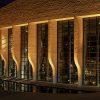
 Activity
Activity
 Activity
Activity
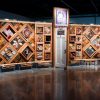 Film
Film
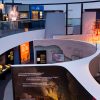 Exhibition
Exhibition
 Exhibition
Exhibition
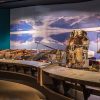 Exhibition
Exhibition
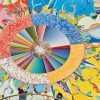 Online Exhibition
Online Exhibition
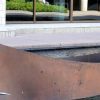 Online Exhibition
Online Exhibition
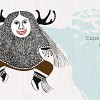 Online Exhibition
Online Exhibition
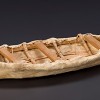 Online Exhibition
Online Exhibition
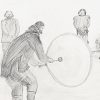 Online Exhibition
Online Exhibition
 Video
Video